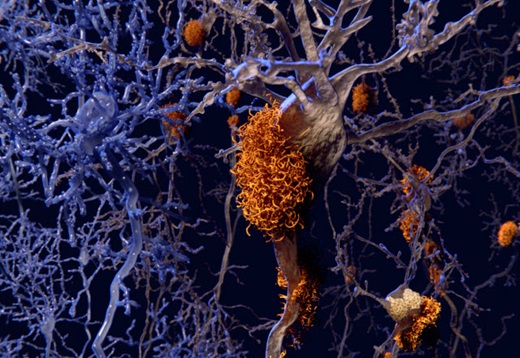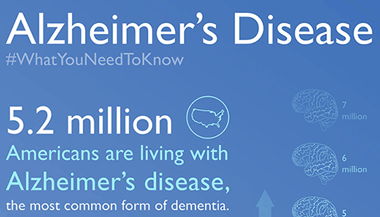Alzheimer's: Studying a New Protein Inspires Hope
New research is shining a light on potential treatment strategies to prevent memory loss in patients with Alzheimer’s disease.
Researchers at the Johns Hopkins University School of Medicine are studying Ephexin 5, a protein that appears in greater amounts in the brains of people with Alzheimer’s disease . Blocking this protein in mice seems to prevent the development of memory loss.
Researchers say these findings could eventually advance the development of drugs that target Ephexin 5 and prevent or treat symptoms of Alzheimer’s.

Focusing on a New Alzheimer’s Culprit
Seth Margolis, Ph.D., is a researcher in biological chemistry and neuroscience at the Johns Hopkins School of Medicine. His team’s findings were published online in the Journal of Clinical Investigation on March 27, 2017.
Previous Alzheimer’s disease research has shown that a key sign of Alzheimer’s disease is the growth of thick plaques on the brain.
What’s new is the finding from Margolis’s team that brain cells produce too much Ephexin5 when the thick plaques are present. This overproduction limits the connection between brain cells (synapses) and contributes to memory loss.
Dr. Margolis and his team conducted several additional studies and found that blocking Ephexin 5 in mice, even those with brain plaques, can prevent or stop memory loss in those mice.
Hope for the Future
Taken together, the results of the Margolis team’s work suggest that both the growth of thick plaques and other factors trigger the production of too much Exephrin5, which limits connections between brain cells and contributes to Alzheimer’s devastating memory loss.
A drug that could shut down the production of Exephrin5 might transform Alzheimer’s therapy.
“Ephexin 5 is a tantalizing pharmaceutical target because in otherwise healthy adults, there’s very little present in the brain,” says Gabrielle L. Sell, a graduate student at the Johns Hopkins University School of Medicine who works with Dr. Margolis. “That means shutting off [the protein] might carry very few side effects.”




